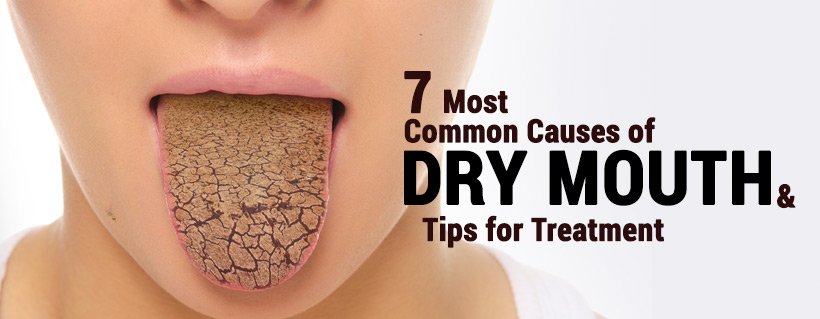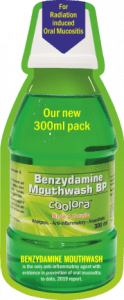Menu

Date: 16th June,2017
Everyone gets a dry mouth from time-to-time due to dehydration, nervousness, or stress. But, if you have been suffering from a perpetual dry feeling in your mouth, you may have xerostomia or dry mouth. Dry mouth is a condition where your salivary glands don’t produce enough saliva to keep your mouth moist.
Dry mouth can cause a variety of oral problems that lead to detrimental effects on your oral health. But, unlike dental caries or gum disease, patients usually don’t visit their dentist for dry mouth.
The most noticeable sign that you’re suffering from xerostomia is constant dryness in your mouth. Other symptoms of dry mouth are:
Healthy production of saliva is vital to your oral health. It is mostly made of water but it also contains important components that prevent tooth decay and help in digestion. Here are some reasons why saliva is important:
Occurrence of dry mouth can be attributed to several factors. They are:
There are many prescription and over-the-counter drugs that cause dry mouth as a side effect. Medications used to treat depression, anxiety, allergies, cold, nausea, and asthma, among others are some of the likely suspects. So, if you have been using antihistamines, analgesics, decongestants, diuretics, or certain bronchodilators, they may be the cause of your dry mouth.
Dry mouth may also be caused due to some medical conditions. Some of the diseases that have dry mouth as a symptom are:
The most common treatment for cancer is radiation and chemotherapy. Radiation therapy from head to neck region damages the salivary glands that results in lower saliva production. In addition, the drugs used for cancer treatment changes the nature of saliva. This makes the saliva thicker, and causes the mouth to feel dry. Dry mouth caused due to cancer treatment may be temporary depending on the dose and area treated.
As we get older, salivary glands, like many other organs, don’t function the way they once used to. This results in lower saliva secretion causing dry mouth. Moreover, older people usually use medication for various conditions that also causes dry mouth. Although, this doesn’t mean that all older people suffer from dry mouth.
Dry mouth can also be caused due to nerve damage in the head and neck region. Nerve damage can be caused due to an injury or during a surgical procedure.
Dehydration is a temporary cause of dry mouth. If you’re suffering from xerostomia due to another condition, then dehydration can worsen the situation. Fever, excessive sweating, diarrhoea, burns, and vomiting are major causes of dehydration.
Tobacco tends to dehydrate your mouth. Hence, if you smoke cigarettes or chew tobacco, the saliva content of your mouth decreases. Problems like open mouth breathing and snoring also cause xerostomia.
Many people regard xerostomia or dry mouth as an inconvenience but don’t do much about it. But, since it can give rise to other oral ailments, it shouldn’t be ignored. Here are some ways to treat Dry Mouth:
If you think that any of your medicines are causing dry mouth, then speak to your doctor. He or she will lower your dosage or switch to a drug that cures the same illness without causing dry mouth. The doctor may also prescribe medication that boosts saliva production.
Since dry mouth is caused due to low saliva, it is vital to keep your mouth moist. To do so, you can drink large amount of water every day. You can also chew sugar-free gums to stimulate saliva production. Also, avoid breathing through your mouth.
Avoid using tobacco products and drinking alcohol as both dry out your mouth. You can also consider using a humidifier at night to add moisture to the air you breathe.
Saliva substitutes or artificial saliva are products that help in relieving the discomfort caused due to dry mouth. On regular use, they keep the oral mucosa moist and lubricated. This helps you to eat, speak, and sleep with ease. Saliva substitutes like Wet Mouth from ICPA (buy now on amazon.in) are also very helpful for patients undergoing chemotherapy and radiation.
If you experience dryness in your mouth over a long period, make sure you tell your dentist about it. While suffering from xerostomia, it’s even more important to take care of your oral hygiene. So, make sure that you brush twice a day, floss, and rinse your teeth regularly.


| PRODUCTS | QTY | PRICE | VALUE in INR |
|---|
| PRODUCTS | QTY | PRICE | VALUE in INR |
|---|